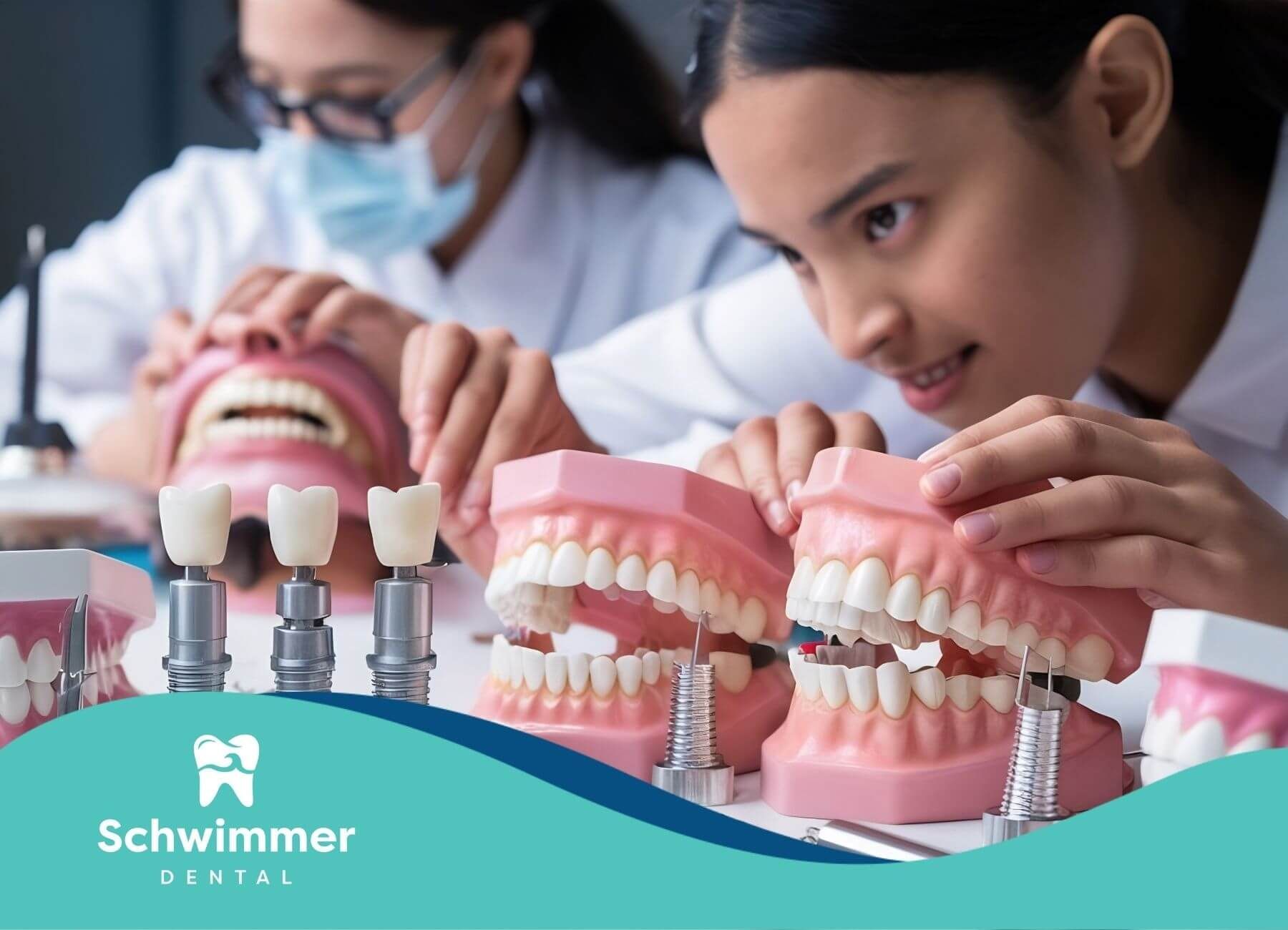Dental Anxiety: The Most Common Fears and How to Tackle Them
If you’ve ever felt nervous about going to the dentist, you’re definitely not alone. In fact, dental anxiety is incredibly common.
Some studies suggest that nearly 40% of people experience some level of fear before a dental visit, and about 15% avoid the dentist altogether because of it. I’ve seen patients who waited years to come back because fear got the best of them.
The problem is, avoiding dental care often leads to bigger problems that could have been prevented with earlier treatment.
I want to share the most common dental fears I hear from patients and, more importantly, explain how we work together to make those fears manageable.
Fear of Pain
Pain tops the list when it comes to dental fears. A lot of this stems from stories people have heard from friends or family, or sometimes a negative experience they had as a child. But the truth is, modern dentistry is not what it used to be.
Today, we use advanced anesthetics, minimally invasive techniques, and even sedation dentistry to make procedures comfortable. In fact, many patients are surprised when they realize how little they feel—even during something like a root canal or implant procedure.
How We Manage Pain in the Dental Chair
- Local anesthesia: Numbs the treatment area completely.
- Topical numbing gel: Applied before the injection, so you barely feel it.
- Sedation dentistry: Options like nitrous oxide (“laughing gas”) or oral sedation help patients deeply relax.
- Gentle techniques: We take our time and use the latest tools to reduce discomfort.
The goal isn’t just to get you through the procedure—it’s to make sure you feel calm and confident before, during, and after.
Fear of Needles
For some, it’s not even the procedure itself—it’s the thought of the needle. Even tough adults who never flinch at anything else get uneasy when they see the syringe.
I understand this completely. That’s why we go out of our way to make injections as comfortable as possible.
What Helps Ease Needle Anxiety
- Applying numbing gel first, so you don’t feel the pinch.
- Using ultra-thin needles designed for comfort.
- Distracting with conversation, music, or guided breathing.
- Giving patients the option to look away or not see the needle at all.
The truth is, with the right approach, most patients say they didn’t even realize the injection was over until I told them.
Fear of Loss of Control
Another big concern patients share is the feeling of being out of control while lying in the chair. It can feel intimidating when you’re reclined, can’t talk easily, and someone else is working inside your mouth.
I always reassure patients that they’re in charge—we’re just here to help.
How We Give Control Back to Patients
- Hand signals: Agree on a simple sign to pause at any time.
- Clear communication: We explain each step before we begin so you know what’s happening.
- Check-ins: We stop often to ask how you’re doing.
- Short breaks: If you need to breathe, sip water, or just relax, we pause.
Once patients realize they can pause at any time, the sense of control makes the experience much less intimidating.
Fear of Costs
Money is one of the most overlooked dental fears, but I hear about it often. Many patients hesitate to schedule treatment because they’re worried about the cost.
I get it—dental care can be an investment. But here’s what’s important to understand: delaying treatment usually makes things worse and more expensive later.
How We Help Ease Financial Concerns
- Breaking treatment into phases when possible
- Offering financing or payment plans
- Helping patients maximize their insurance benefits
- Explaining the long-term value of treatment
Think of it this way: fixing a small cavity today is far less costly than waiting until it becomes an infection that requires a root canal or extraction.
Fear of Embarrassment
This one is more emotional but very real. I’ve had patients tell me they avoided the dentist because they were ashamed of how their teeth looked, or they were embarrassed that it had been years since their last cleaning.
My response is always the same: you’re not alone, and you’re not being judged. Our role is to help you, not to criticize you.
What Patients Need to Remember
- We’ve seen everything—nothing shocks us.
- It’s never too late to start fresh with your smile.
- Coming in is the first step toward a healthier, more confident future.
Fear of Bad Experiences from the Past
For some patients, their fear doesn’t come from the unknown but from something that happened years ago. Maybe they had a painful filling as a child, or they weren’t listened to when they said something hurt.
How We Build New, Better Experiences
- Listening carefully and validating fears
- Taking treatment at the patient’s pace
- Using modern tools and anesthesia that weren’t available decades ago
- Celebrating small wins together (like getting through a cleaning comfortably)
I’ve seen patients completely change their perspective after one positive visit—it can truly undo years of fear.
Fear of Dental Noises and Smells
This may sound small, but for many, the sound of the drill or the smell of dental materials can trigger anxiety. These sensory experiences remind patients of past visits or just make them uncomfortable.
Ways We Reduce These Triggers
- Offering noise-canceling headphones or music
- Using quieter, more advanced equipment
- Keeping the office environment clean, fresh, and calming
- Providing distractions so patients focus on something else
Sometimes, small changes make a big difference.
Facing Dental Fears Together
Dental fears are real, but they don’t have to control your health. Every day, I see patients who once thought they could never step foot in a dental office, and now they’re smiling confidently again. It all starts with open communication, gentle care, and a team that understands your concerns.
At Schwimmer Dental, we take pride in being that team. Whether you need veneers, dental implants, broken tooth repair, or emergency care, we approach every treatment with compassion and understanding.
If you’ve been putting off care because of fear, I want you to know—you’ll be heard, respected, and cared for here.
Don’t let fear hold you back any longer. Schedule your appointment today and take the first step toward a healthier, brighter smile with one of the most trusted dental teams in New Jersey.
FAQs
Is sedation dentistry safe?
Yes. Sedation dentistry has been safely used for years, and we carefully review your health history before recommending it. Options like nitrous oxide (“laughing gas”) wear off quickly, while oral sedation is monitored closely to ensure your comfort and safety.
Can I bring a friend or family member with me to my appointment?
Absolutely. Having someone you trust nearby can make a huge difference. Many patients feel more relaxed knowing they have a support person with them.
Will I feel judged if I haven’t seen a dentist in years?
Not at all. We understand life gets busy and dental fears are real. Our goal is to help you get healthy, not to criticize you for the past.
Sources:
- https://pmc.ncbi.nlm.nih.gov/articles/PMC5586885/
- https://pmc.ncbi.nlm.nih.gov/articles/PMC10455740/
- https://pmc.ncbi.nlm.nih.gov/articles/PMC8331203/
- https://pmc.ncbi.nlm.nih.gov/articles/PMC9777862/
- https://my.clevelandclinic.org/health/diseases/22594-dentophobia-fear-of-dentists



